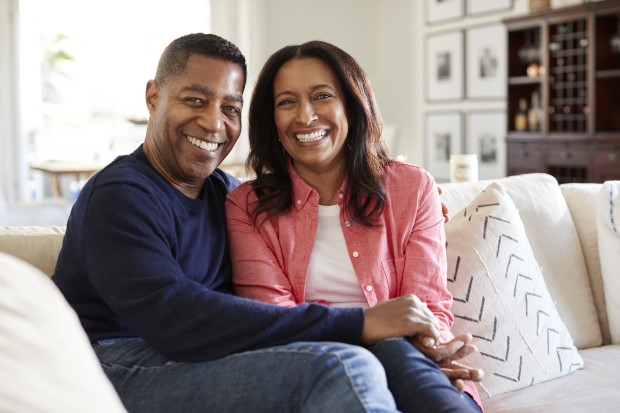
A healthy relationship is one based on honesty, respect, and trust, where you feel safe being open and vulnerable. That said, many people have no idea how to create a space for both partners to feel safe being open and vulnerable. Vulnerability requires that you trust yourself and your partner to express yourself openly and without judgement. Vulnerability creates an environment for growth, deepening your love for each other. In this article we will talk about emotional intelligence, including the role it plays in relationships and how to increase yours. I will provide ideas to guide you on your journey toward opening up with your partner, thus increasing your trust and emotional intimacy with each other.
Building a Safe Space
Your relationship is a place you can feel completely loved for who you are. Yet many people don’t know what it means to create a safe space for each other. Bringing two people together from varying backgrounds, with different personalities, to form a relationship can include challenges. Both people in the relationship must be committed to creating a safe and vulnerable space to form the emotional intimacy a relationship needs to thrive.
It can be scary to open yourself up to someone else. Being vulnerable with your partner requires that you accept yourself first before you can open up and share with someone else. Vulnerability builds trust, knowing that your partner has your best interest at heart. It encourages you to take responsibility for your own feelings and builds confidence to share those feelings without judgement. It creates a strong bond between you and partner, deepening your love and commitment to each other. Knowing this is the one person you can truly be yourself with and still be accepted and loved.
Emotional Intelligence
Developing emotional intelligence is important to having a strong, successful connection. But what does it mean to have emotional intelligence? The dictionary defines it as “the capacity to be aware of, control, and express one’s emotions, and to handle interpersonal relationships judiciously and empathetically.” Emotional intelligence allows us to interact with other people successfully. Emotional intelligence starts with learning to become aware of your feelings and emotions and ultimately those of others.
Day to day life can trigger a variety of emotions. Understanding why these emotions arise means you can, ultimately, control how you react to them, taking responsibility for your emotions and behavior. To do this, you must understand what triggers certain emotions within you and within others. For example, if someone yells at you, they might not even be angry at you. They might be feeling stress in another area of their life, which comes out in a manner directed at you. Realization of this allows you not to take it personally and ensures that you do not react in ager.
Once you understand yourself better, it is easier to understand others, and develop empathy for them. Emotional intelligence can strengthen your relationship, increase intimacy, and grow love. It is a lifelong process to continue to learn, improve, and refine.
Identify Emotions
Start by noticing how you feel and label those feelings. There are so many more feelings than happy, sad, and angry. You might be frustrated, disappointed, worried, to name a few. I suggest stopping during the day to notice how you feel. Don’t just say, “I am upset.” Dig deeper to discover if there is another feeling below feeling “upset.” Maybe you feel hurt. By better understanding what you are feeling, you can move to the next step in developing emotional intelligence.
Unlearn emotional bad habits
Take time to consider how your emotions affect your thoughts and actions. You can’t control your initial reaction to a situation, but you can learn to control the thoughts that follow, which will ultimately determine the decisions you make. Most people have an immediate reaction to situations based on beliefs they learned early in life. Such beliefs may or may not serve your present best interests. We often react to situations based on these outdated beliefs, later regretting our words or actions. Our reactions may not have much to do with the event. It may have more to do with what our mind is telling you the event means, causing beliefs to be triggered. It is beneficial to identify the patterns to learn appropriate ways of responding and communicating.
Practice mindfulness
The best way to practice mindfulness is to pause when you experience strong emotions and give yourself time to process those feelings before acting on them. Stop and observe your thoughts behind the feelings. What are you telling yourself about the interaction? Are you sure your interpretation is accurate, or would it be beneficial to ask for clarification? There are numerous ways of looking at a situation. Even if the other person said or did something that warrants your strong reaction, there is merit in taking time to process your feelings. Once you are calmer, you can have a more productive conversation with the other person.
Ask to be held accountable
Learning to break old patterns and to deal with emotions more positively takes time and practice. It is a process of retraining your brain to react in a new way. The more you practice, the easier it gets. You are developing a new habit of intentionally checking your emotions, thoughts, and actions, striving for clarity and empathy in your interactions with others. It is beneficial to talk to your partner and let them know what you are doing. Ask them to help hold you accountable. They might notice your reactions before you do and can kindly and gently remind you to take a deep breath before reacting. They can proactively give you time and space to process things, making an agreement to talk about the situation later. Doing this for each other is a wonderful way to create a safe space.



